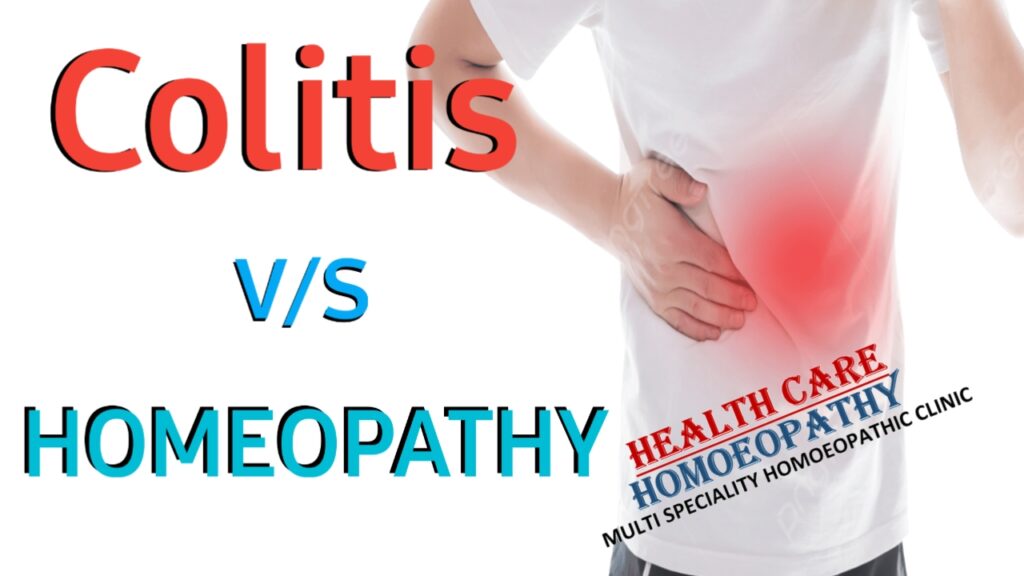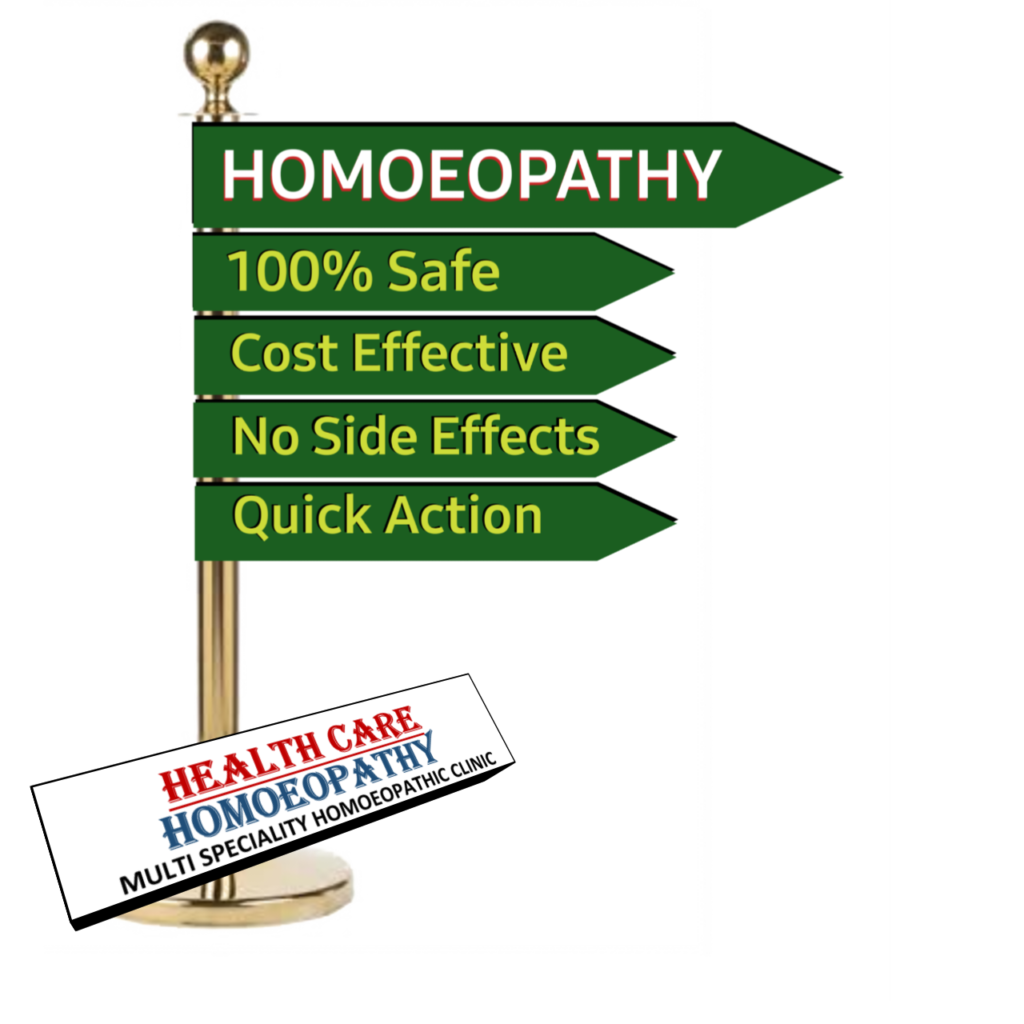- +91 9939516088
- info@hchomeopathy.in
- Mon - Sat / 10:00AM - 6:00PM
Blog
Understanding: Colitis The Best Homeopathic Treatment

Colitis is a term used to describe inflammation of the colon (large intestine). This condition can cause significant discomfort and impact an individual’s quality of life. There are various types of colitis, including ulcerative colitis, Crohn’s disease (when it affects the colon), infectious colitis,
ischemic colitis, and microscopic colitis. This blog will provide a comprehensive overview of colitis, including its signs and symptoms, causes, risk factors, differential diagnosis, management strategies, and homeopathic treatment options.
What is Colitis?
Colitis refers to inflammation of the colon, which can result from various causes such as infections, inflammatory bowel disease (IBD), ischemia (restricted blood flow), and other conditions. The inflammation can lead to a range of gastrointestinal symptoms, and the severity can vary from mild to severe.
Signs and Symptoms of Colitis
The symptoms of colitis can vary depending on the type and severity of the inflammation.
Common signs and symptoms include:
Abdominal Pain and Cramping : Often in the lower abdomen, which may be constant or intermittent.
Diarrhea: Frequent, watery stools, sometimes accompanied by blood or mucus.Urgency to Defecate: A sudden, urgent need to have a bowel movement.
Rectal Bleeding: Presence of blood in the stool or on toilet paper.
Fever: A common symptom in infectious colitis or severe inflammatory conditions.Fatigue: General feeling of tiredness and lack of energy.
Weight Loss: Unintentional weight loss due to malabsorption and decreased appetite.
Dehydration: Resulting from severe diarrhea and fluid loss.
Causes of Colitis
Colitis can result from various causes, which can be broadly categorized as follows:
Infectious Colitis: Caused by bacterial, viral, or parasitic infections (e.g., Salmonella, Shigella, Clostridium difficile, E. coli).
Inflammatory Bowel Disease (IBD): Includes ulcerative colitis and Crohn’s disease, both of which are chronic inflammatory conditions of the gastrointestinal tract.
Ischemic Colitis: Occurs when blood flow to the colon is reduced, often due to blocked or narrowed blood vessels.
Microscopic Colitis: Characterized by inflammation that is only visible under a microscope,including collagenous colitis and lymphocytic colitis.
Allergic Colitis: Seen in some infants,often due to a reaction to proteins in cow’s milk or soy.
Risk Factors for Colitis
Several factors can increase the risk of developing colitis,including:
Genetic Predisposition: Family history of colitis or inflammatory bowel disease.
Age: Younger adults are more commonly affected by ulcerative colitis and Crohn’s disease,
while older adults may be more susceptible to ischemic colitis.
Diet and Lifestyle: High-fat,low-fiber diets, smoking, and alcohol consumption can increase the risk.
Infections: Recent travel to areas with poor sanitation and exposure to contaminated food or water.
Medications: Certain medications, such as NSAIDs,antibiotics,and immune-suppressing drugs,can increase the risk of colitis.
Chronic Diseases: Conditions such as diabetes,cardiovascular disease,and autoimmune disorders.
Differential Diagnosis
Differential diagnosis is crucial for accurately identifying the cause of colitis and ensuring appropriate treatment.
Conditions to consider include:
Irritable Bowel Syndrome (IBS): A functional gastrointestinal disorder causing similar symptoms but without inflammation.
Diverticulitis: Inflammation or infection of diverticula in the colon.
Colon Cancer: Can present with symptoms similar to colitis,such as abdominal pain and rectal bleeding.
Celiac Disease: An autoimmune disorder triggered by gluten,causing similar gastrointestinal symptoms.
Infectious Gastroenteritis: Caused by various pathogens,leading to acute inflammation of the gastrointestinal tract.
Do’s and Don’ts for Managing Colitis
Do’s:
Follow a Balanced Diet: Consume a diet rich in fiber, fruits,vegetables,and lean proteins.Avoid trigger foods that worsen symptoms.
Stay Hydrated: Drink plenty of fluids to prevent dehydration, especially during episodes of diarrhea.
Manage Stress: Practice stress-reducing techniques such as yoga, meditation, and deep breathing exercises.
Exercise Regularly: Engage in moderate physical activity to maintain overall health and well-being.
Seek Medical Advice: Consult with healthcare professionals/ Homeopathic physician for proper diagnosis and treatment plans.
Don’ts:
Avoid Trigger Foods: Stay away from foods and beverages that trigger or worsen symptoms,
such as spicy foods, caffeine, and alcohol.
Don’t Ignore Symptoms: Seek medical attention if symptoms persist or worsen,as untreated colitis can lead to complications.
Avoid Smoking: Smoking can exacerbate symptoms,particularly in Crohn’s disease.
Don’t Self-Medicate: Avoid using over-the-counter medications without consulting a healthcare provider, as some can worsen colitis symptoms.

Homeopathic Approach
Homeopathy offers a holistic approach to treating colitis by addressing the underlying causes and individual symptoms.
Homeopathic treatment aims to stimulate the body’s self-healing mechanisms and restore balance.
Principles of Homeopathy
Homeopathy is based on the principles of treating “like with like” and individualized treatment.
Each patient is treated as a unique individual,with remedies tailored to their specific symptoms and overall health.
Common Homeopathic Remedies for Colitis
Several homeopathic remedies are
commonly used to treat colitis,each chosen based on the patient’s unique symptoms and health status.
Some of these remedies include:
Nux Vomica: Indicated for individuals with abdominal cramps, frequent urging to defecate, and symptoms aggravated by stress, spicy food, and alcohol.
Arsenicum Album: Suitable for patients with burning abdominal pain,restlessness, and diarrhea that is worse at night and from cold drinks.
Aloe Socotrina: Used for individuals with urgent, explosive diarrhea, accompanied by abdominal cramping and rectal fullness.
Mercurius Corrosivus: Indicated for severe cases with intense abdominal pain, bloody diarrhea, and tenesmus(painful, ineffective straining).
Colocynthis: Beneficial for patients with severe abdominal cramping,relieved by bending double or applying pressure.
Why Homeopathy May Be Better for Colitis
Holistic Treatment:
Homeopathy treats the individual as a whole, addressing not just the symptoms but also the underlying causes and overall health. This holistic approach can lead to more comprehensive and long-lasting results.
Individualized Approach: Homeopathic treatment is tailored to the specific needs of each patient. This personalized care ensures that the remedies are well-suited to the individual’s symptoms, constitution, and health history.
No Side Effects: Homeopathic remedies are natural and generally have fewer side effects compared to conventional medications.This makes homeopathy a safer option for many individuals.
Non-Invasive: Homeopathy offers a non-invasive alternative to conventional treatments,which can be beneficial for those looking to avoid more aggressive medical interventions.
Support for Overall Well-being: In addition to addressing colitis, homeopathy aims to improve the patient’s overall health and well-being, enhancing their quality of life.
Conclusion: Colitis is a condition that can cause significant discomfort and impact an individual’s quality of life.Understanding its signs and symptoms, causes, risk factors, and management strategies is crucial for effective treatment.While conventional treatments are available,
“Homeopathy offers a holistic and individualized approach that can provide lasting relief and support overall health”.If you or someone you know is experiencing symptoms of colitis,consider consulting a qualified homeopathic practitioner to explore the potential benefits of this natural and comprehensive treatment approach.
